Content warning
This story may contain sensitive material or discuss topics that some readers may find distressing. Reader discretion is advised. The views and opinions expressed in this story are those of the author and do not necessarily reflect the official policy or position of Vocal.
IS INTERMITTENT FASTING EFFECTIVE IN WEIGHT LOSS?
INTERMITTENT FASTING

Intermittent fasting is a popular dietary approach that involves alternating periods of fasting and eating. It has gained significant attention for its potential benefits for weight loss and overall health. Here are ten key topics to explore when discussing the effectiveness of intermittent fasting:
1. What is intermittent fasting?
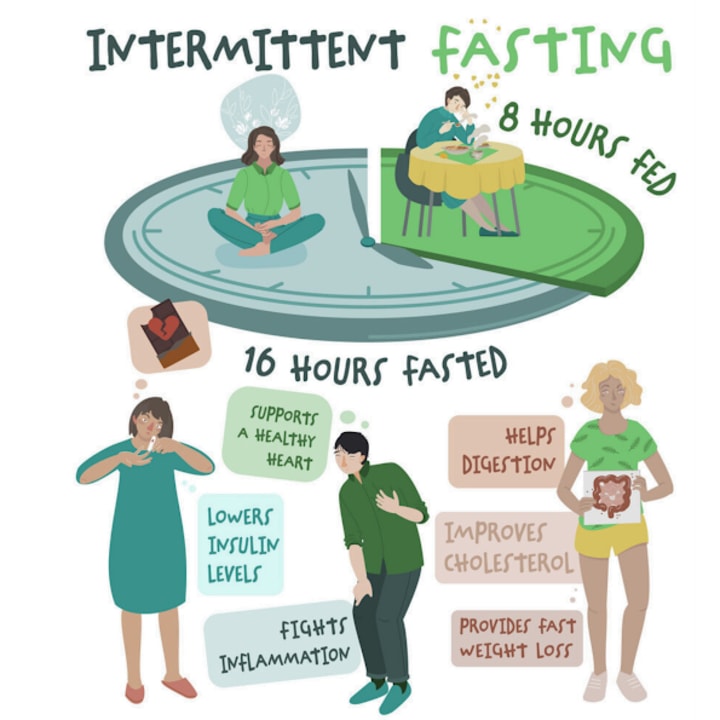
Define intermittent fasting and explain the different fasting and eating windows commonly used. Intermittent fasting is a popular dietary approach that involves cycling between periods of fasting and eating. It has gained significant attention for its potential benefits in weight loss and overall health. In this method, individuals restrict their calorie intake for specific time periods, alternating between fasting and eating windows. During the fasting period, the body undergoes several metabolic changes. With no incoming food, insulin levels decrease, and the body starts using stored fat as a source of energy. This can lead to weight loss as the body burns fat reserves. Additionally, fasting triggers cellular repair processes and promotes autophagy, a natural detoxification and rejuvenation process that removes damaged cells and promotes cell renewal.
There are several intermittent fasting protocols, but two of the most common methods are the 16/8 method and the 5:2 diet. The 16/8 method involves fasting for 16 hours each day and restricting eating to an 8-hour window. The 5:2 diet, on the other hand, allows individuals to eat normally for five days a week and restrict calorie intake to 500-600 calories for two non-consecutive days. Intermittent fasting can be effective for weight loss due to its ability to create a calorie deficit and improve metabolic health. However, it is essential to focus on consuming nutrient-dense foods during eating periods to ensure adequate nutrition. It is also crucial to consult with a healthcare professional or registered dietitian before starting any fasting regimen, especially for individuals with underlying health conditions or those taking medications.
While intermittent fasting can be a helpful tool for weight loss, it is not suitable for everyone. Pregnant or breastfeeding women, individuals with a history of eating disorders, and those with certain medical conditions should avoid fasting or seek guidance from a healthcare professional. In conclusion, intermittent fasting is a dietary approach that involves cycling between fasting and eating windows. It can be an effective strategy for weight loss by promoting fat burning and metabolic benefits. However, it is important to approach intermittent fasting with caution, ensuring proper nutrition and consulting with a healthcare professional.
2. How does intermittent fasting work?
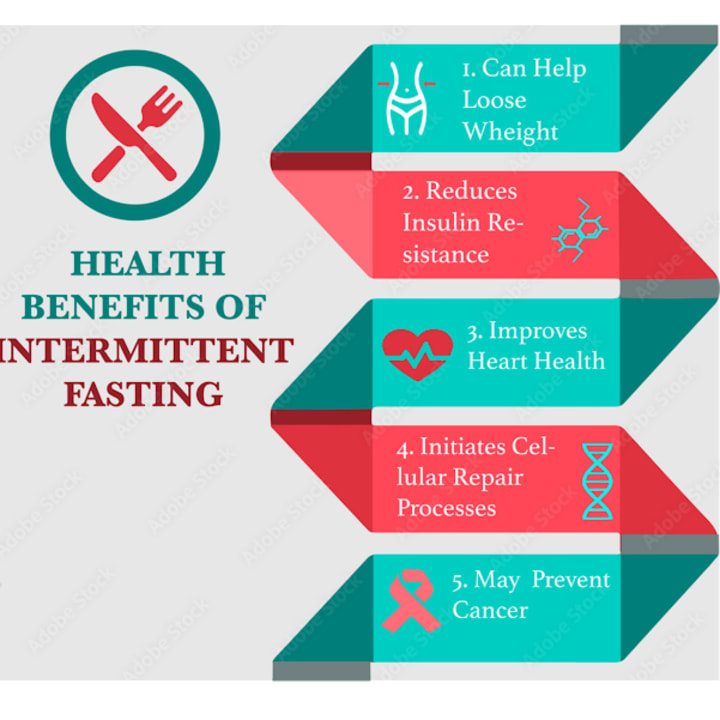
Explore the physiological mechanisms behind intermittent fasting, such as changes in hormone levels and metabolic processes. Intermittent fasting is a popular dietary approach that involves cycling between periods of fasting and eating. It has gained attention for its potential benefits in weight loss and overall health. The concept behind intermittent fasting is to restrict the time window in which you consume food, thereby promoting a calorie deficit and allowing the body to utilize stored fat for energy.
When you fast, several physiological changes occur in the body. During the fasting period, typically lasting between 12 to 16 hours, the body exhausts its glycogen stores, which are derived from carbohydrates. Once glycogen is depleted, the body shifts to an alternative energy source, primarily stored fat. This metabolic switch triggers a process called ketosis, where the body produces ketones from fat breakdown. Ketones are used as fuel for various bodily functions, including the brain. Intermittent fasting also influences hormone levels in the body. The fasting state leads to increased levels of human growth hormone (HGH), which promotes fat burning and muscle preservation. Additionally, insulin sensitivity improves during fasting periods, meaning the body becomes more efficient at utilizing insulin and managing blood sugar levels.
Another key mechanism of intermittent fasting is the regulation of appetite and calorie intake. By limiting the eating window, people tend to consume fewer calories overall. Fasting can also help control hunger hormones, such as ghrelin, which decreases appetite. This reduced calorie intake contributes to weight loss. It's important to note that intermittent fasting is not a license to overeat during the eating window. It is still crucial to make healthy food choices and maintain a balanced diet. Additionally, intermittent fasting may not be suitable for everyone, especially individuals with certain medical conditions or who are pregnant or breastfeeding. Consulting with a healthcare professional is recommended before starting any new diet or fasting regimen.
In conclusion, intermittent fasting works by promoting a calorie deficit, utilizing stored fat for energy, improving hormone balance, and regulating appetite. When combined with a healthy lifestyle and proper nutrition, intermittent fasting can be an effective strategy for weight loss and overall well-being.
3. Weight loss and intermittent fasting

Discuss the impact of intermittent fasting on weight loss, including its effects on calorie intake, fat burning, and metabolic rate. Weight loss and intermittent fasting have gained significant attention in the realm of weight management. Intermittent fasting is an eating pattern that alternates between periods of fasting and eating. It does not specify which foods to eat or avoid, but rather focuses on when to eat them. This approach has shown promising results in aiding weight loss and improving overall health.
One of the main mechanisms behind intermittent fasting's effectiveness for weight loss is its impact on calorie intake. By limiting the eating window, typically through methods like the 16/8 method (fasting for 16 hours and eating within an 8-hour window), individuals naturally consume fewer calories. This calorie restriction can create a calorie deficit, leading to weight loss. Additionally, intermittent fasting has been shown to have beneficial effects on metabolic health. It can enhance insulin sensitivity, promote fat burning, and reduce inflammation in the body. These metabolic changes contribute to improved weight management and overall health.
Moreover, intermittent fasting may help curb cravings and emotional eating patterns. By establishing a structured eating routine, individuals can develop a better relationship with food and improve their ability to differentiate between true hunger and emotional triggers. It's important to note that intermittent fasting may not be suitable for everyone, particularly those with certain medical conditions or specific dietary needs. Consulting with a healthcare professional or a registered dietitian is recommended before embarking on any fasting regimen. In conclusion, intermittent fasting can be an effective approach for weight loss due to its impact on calorie intake, metabolic health, and eating behavior. It offers a flexible and sustainable way of managing weight while providing additional health benefits. However, individual needs and considerations should always be taken into account when adopting any dietary approach.
4. Intermittent fasting and insulin sensitivity
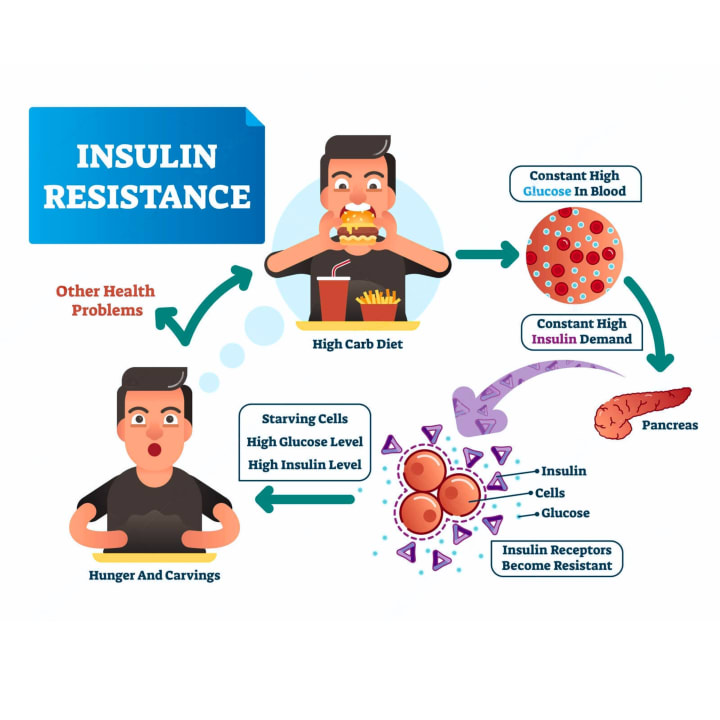
Examine how intermittent fasting can improve insulin sensitivity, potentially reducing the risk of type 2 diabetes and improving blood sugar control. Intermittent fasting is a popular approach to weight loss that involves alternating periods of fasting and eating. One of the key benefits of intermittent fasting is its positive impact on insulin sensitivity, which plays a crucial role in weight management. Insulin is a hormone that regulates blood sugar levels by facilitating the uptake of glucose into cells for energy. When insulin sensitivity is impaired, the body becomes less responsive to the effects of insulin, leading to higher blood sugar levels and increased fat storage. This can contribute to weight gain and make it more difficult to lose excess pounds.
Intermittent fasting helps improve insulin sensitivity by allowing the body to enter a state of fasting, during which insulin levels decrease and the body starts to burn stored fat for energy. As the body adapts to intermittent fasting, it becomes more efficient at utilizing insulin and glucose, leading to improved insulin sensitivity. By enhancing insulin sensitivity, intermittent fasting can help promote weight loss. When the body is in a fasted state, it taps into its fat stores for energy, leading to a reduction in overall body fat. Additionally, improved insulin sensitivity allows for better blood sugar control and reduces the risk of developing conditions such as type 2 diabetes.
It's important to note that while intermittent fasting can be an effective weight loss strategy, it should be approached with caution and personalized to individual needs. Consulting with a healthcare professional or a registered dietitian is advisable before starting any fasting regimen.
In conclusion, intermittent fasting can positively impact weight loss by improving insulin sensitivity. By incorporating periods of fasting into a structured eating pattern, individuals may experience enhanced fat burning, better blood sugar control, and overall improvements in metabolic health. However, it's essential to prioritize personalized guidance and ensure that intermittent fasting aligns with individual health goals and needs.
5. Effects on body composition
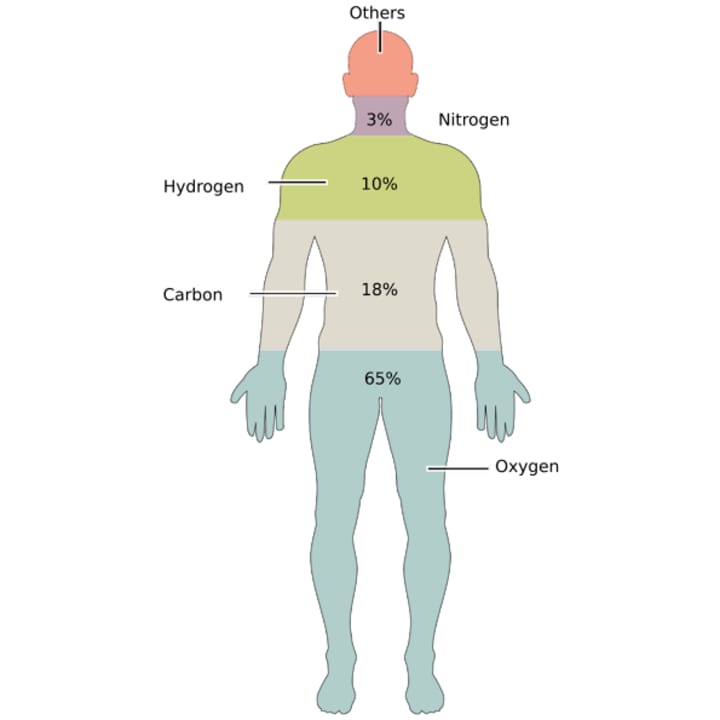
Explore the impact of intermittent fasting on body composition, including changes in muscle mass, fat mass, and overall body weight. Weight loss can have significant effects on body composition, referring to the relative proportions of fat, muscle, and other tissues in the body. When individuals engage in a weight loss program, their primary goal is often to reduce body fat while preserving lean muscle mass. Understanding the effects of weight loss on body composition is crucial for achieving optimal results and maintaining overall health.
During weight loss, the body experiences a caloric deficit, where the energy intake from food is lower than the energy expended. This deficit prompts the body to utilize stored energy sources, primarily body fat, to meet its energy needs. As a result, individuals tend to experience a reduction in overall body fat, leading to improvements in body composition. However, weight loss can also lead to a decrease in lean muscle mass if not properly managed. To mitigate muscle loss, individuals are advised to incorporate resistance training and consume adequate protein during their weight loss journey. Resistance training stimulates muscle protein synthesis, helping to preserve or even increase lean muscle mass while losing fat.
In addition to fat loss and muscle preservation, weight loss can also have positive effects on other aspects of body composition. It may result in a decrease in visceral fat, which is the fat stored around vital organs in the abdominal cavity. Reduction in visceral fat is associated with a lower risk of various health conditions, including cardiovascular diseases and type 2 diabetes. Furthermore, weight loss can lead to improvements in body composition-related parameters such as body mass index (BMI), waist circumference, and body fat percentage. These changes not only contribute to a more desirable physical appearance but also have important implications for overall health and well-being.
In conclusion, weight loss has significant effects on body composition. It promotes a reduction in body fat, preservation of lean muscle mass, and improvements in overall body composition-related parameters. By incorporating resistance training, adequate protein intake, and adopting a balanced approach to weight loss, individuals can optimize their body composition changes and achieve their desired goals while maintaining good health.
6. Other health benefits of intermittent fasting
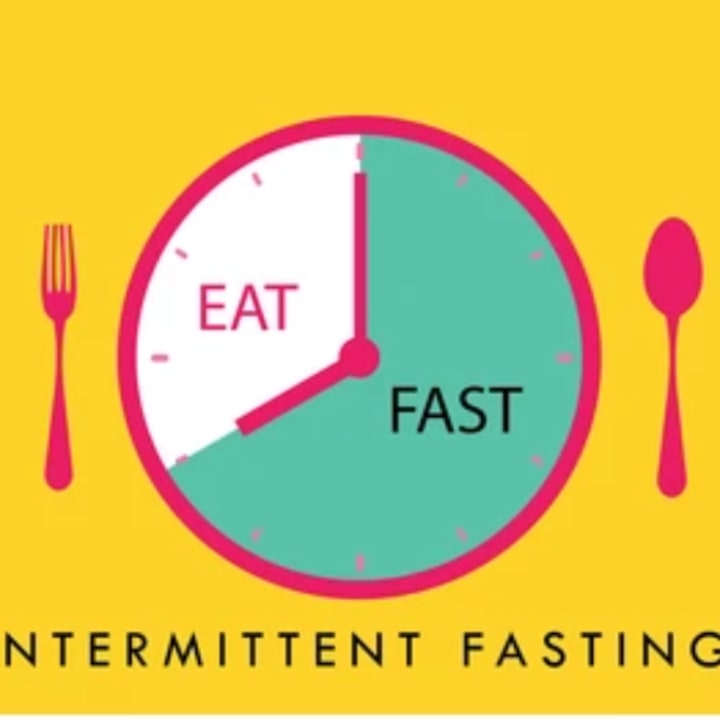
Discuss additional potential benefits of intermittent fasting, such as improved brain function, reduced inflammation, and enhanced cellular repair. Intermittent fasting has gained popularity as a weight loss strategy, but its benefits go beyond just shedding pounds. This eating pattern, which involves alternating periods of fasting and eating, has been associated with several other health benefits. One of the key advantages of intermittent fasting is its impact on insulin sensitivity. During fasting periods, the body's insulin levels decrease, which can enhance insulin sensitivity. Improved insulin sensitivity is crucial for maintaining stable blood sugar levels and preventing insulin resistance, a condition often linked to obesity and type 2 diabetes.
Additionally, intermittent fasting has been found to support cellular repair processes. When the body enters a fasting state, it initiates autophagy, a cellular process that involves the breakdown and recycling of old, damaged cells. This can contribute to cellular rejuvenation and potentially reduce the risk of age-related diseases. Research has also shown that intermittent fasting can have positive effects on cardiovascular health. Studies suggest that intermittent fasting may reduce blood pressure, total cholesterol levels, and triglyceride levels. These improvements in cardiovascular risk factors may help protect against heart disease and promote overall heart health.
Furthermore, intermittent fasting has been shown to promote brain health. Animal studies indicate that intermittent fasting may enhance brain function and increase the production of brain-derived neurotropic factor (BDNF), a protein involved in promoting the growth and survival of neurons. BDNF is associated with improved cognitive function and may offer protection against neurodegenerative diseases like Alzheimer's and Parkinson's. It's important to note that while intermittent fasting can offer these health benefits, it may not be suitable for everyone. Individuals with certain medical conditions or those who are pregnant, breastfeeding, or underweight should exercise caution and consult with a healthcare professional before starting an intermittent fasting regimen.
In conclusion, intermittent fasting not only aids in weight loss but also offers a range of additional health benefits. It can improve insulin sensitivity, support cellular repair, enhance cardiovascular health, and promote brain function. As with any dietary approach, it's essential to listen to your body, seek guidance from healthcare professionals, and make informed choices that align with your individual needs and goals.
7. Potential challenges and side effects

Address common challenges and potential side effects associated with intermittent fasting, such as hunger, fatigue, and difficulty maintaining the fasting schedule. When embarking on a weight loss journey, it's important to be aware of potential challenges and side effects that may arise along the way. While weight loss can have numerous health benefits, it's not without its difficulties. Here are some potential challenges and side effects to consider:
1. Plateaus:
Weight loss progress may not always be linear. It's common to reach plateaus where the scale doesn't budge despite continued efforts. This can be frustrating and demotivating, but it's important to stay persistent and make adjustments to your diet and exercise routine to overcome plateaus.
2. Hunger and cravings:
When consuming fewer calories than your body is accustomed to, feelings of hunger and cravings may arise. Restrictive diets can lead to increased hunger levels, making it challenging to stick to a calorie deficit. It's important to find strategies to manage hunger, such as eating high-fiber foods, staying hydrated, and incorporating protein-rich meals.
3. Fatigue and low energy:
Reduced calorie intake and increased physical activity can lead to temporary fatigue and low energy levels as the body adjusts. It's crucial to prioritize adequate sleep, balanced nutrition, and gradual increases in exercise intensity to maintain energy levels and prevent burnout.
4. Nutritional deficiencies:
Restrictive diets or extreme calorie deficits may result in inadequate nutrient intake, leading to nutritional deficiencies. It's essential to ensure you're getting a wide variety of nutrient-dense foods to meet your body's nutritional needs. Consulting with a healthcare professional or registered dietitian can help develop a balanced meal plan that supports weight loss while meeting nutrient requirements.
5. Emotional and psychological challenges:
Weight loss can bring about emotional and psychological challenges. Body image concerns, self-esteem issues, and social pressures may arise during the process. Developing a positive mindset, seeking support from loved ones or professionals, and focusing on overall well-being rather than just weight loss can help navigate these challenges.
6. Muscle loss:
Rapid weight loss, especially when accompanied by a significant calorie deficit, can result in muscle loss along with fat loss. To minimize muscle loss, it's important to incorporate strength training exercises and consume adequate protein to support muscle maintenance.
Remember, each individual's weight loss journey is unique, and these challenges and side effects may vary. It's crucial to approach weight loss in a sustainable and balanced manner, prioritizing overall health and well-being. Consulting with healthcare professionals or registered dietitians can provide personalized guidance and support throughout your weight loss journey.
8. Different types of intermittent fasting
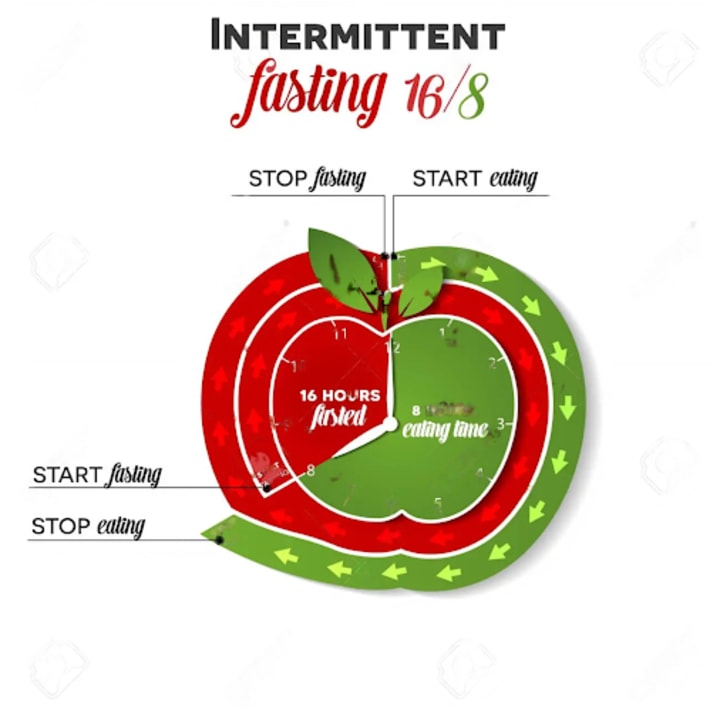
Explore various intermittent fasting protocols, such as alternate-day fasting, 16/8 fasting, and the 5:2 diet, highlighting their similarities and differences. Intermittent fasting has gained popularity as an effective approach for weight loss. It involves alternating periods of fasting and eating, and there are several different types of intermittent fasting that can be effective in promoting weight loss.
1. 16/8 Method:
This method involves fasting for 16 hours each day and restricting eating to an 8-hour window. Typically, people skip breakfast and start eating around noon, then consume their last meal in the evening. This method is easy to follow and can be incorporated into daily routines.
2. 5:2 Diet:
With this approach, individuals eat normally for five days of the week and restrict calorie intake to 500-600 calories on the remaining two days. These fasting days should be non-consecutive. This method allows for greater flexibility and can be easier to adhere to for some people.
3. Alternate Day Fasting:
As the name suggests, this method involves fasting every other day. On fasting days, calorie intake is severely restricted or completely avoided, while on non-fasting days, individuals can eat normally. This approach may yield significant weight loss but can be more challenging to sustain long-term.
4. Eat-Stop-Eat:
This method involves fasting for a full 24 hours once or twice a week. For example, an individual might have dinner one evening and then not eat until dinner the next day. This approach can be effective for weight loss, but it requires discipline during the fasting periods.
5. OMAD (One Meal a Day):
With OMAD, individuals fast for 23 hours a day and consume all their daily calories within a one-hour eating window. This method can be more challenging for beginners, but it offers the convenience of only having to plan and prepare one meal per day.
When practicing intermittent fasting, it's important to maintain a balanced diet during the eating periods, focusing on whole, nutrient-dense foods. It's also crucial to stay hydrated and listen to your body's hunger and fullness cues. Remember, intermittent fasting may not be suitable for everyone, especially individuals with certain medical conditions or those on specific medications. It's always recommended to consult with a healthcare professional before starting any new diet or fasting regimen.
In conclusion, different types of intermittent fasting can be effective tools for weight loss. Finding the approach that suits your lifestyle and preferences is key to long-term success. Combined with a healthy diet and regular exercise, intermittent fasting can be a sustainable way to achieve weight loss goals.
9. Who should avoid intermittent fasting?

Identify individuals who may not be suitable candidates for intermittent fasting, such as pregnant or breastfeeding women, individuals with certain medical conditions, or those with a history of disordered eating. Intermittent fasting has gained popularity as an effective approach for weight loss and improving overall health. However, it may not be suitable for everyone. Here are some individuals who should avoid intermittent fasting:
1. Individuals with certain medical conditions:
Intermittent fasting may not be suitable for individuals with specific medical conditions such as diabetes, low blood sugar (hypoglycemia), eating disorders, or a history of disordered eating. These conditions require careful management of meal timing and blood sugar levels, which may conflict with the fasting periods.
2. Pregnant or breastfeeding women:
Pregnancy and breastfeeding are critical periods that require adequate nutrition for the health and development of both the mother and the baby. Restricting food intake through intermittent fasting may not provide the necessary nutrients during these stages.
3. Underweight individuals:
Intermittent fasting could potentially lead to further weight loss, which may be detrimental for individuals who are already underweight or have a history of malnutrition. In such cases, it's essential to focus on balanced and regular meals to support healthy weight gain.
4. Individuals with nutrient deficiencies:
If someone has existing nutrient deficiencies, intermittent fasting may not be suitable. Fasting periods can restrict the intake of essential vitamins, minerals, and macronutrients needed to address these deficiencies.
5. Those with high energy demands:
Individuals with physically demanding jobs or athletes who require high energy levels may find it challenging to sustain their performance during fasting periods. Adequate fueling before and after physical activity is crucial for optimal performance and recovery.
6. Children and adolescents:
Intermittent fasting may disrupt the growth and development of children and adolescents, who have increased nutritional requirements during these stages. It's important for young individuals to have consistent and balanced meals to support their growth.
As with any dietary approach, it's recommended to consult with a healthcare professional or registered dietitian before starting intermittent fasting, especially if you have any underlying health conditions or concerns. They can provide personalized guidance based on your individual needs and help determine if intermittent fasting is appropriate for you.
10. Practical tips for success with intermittent fasting
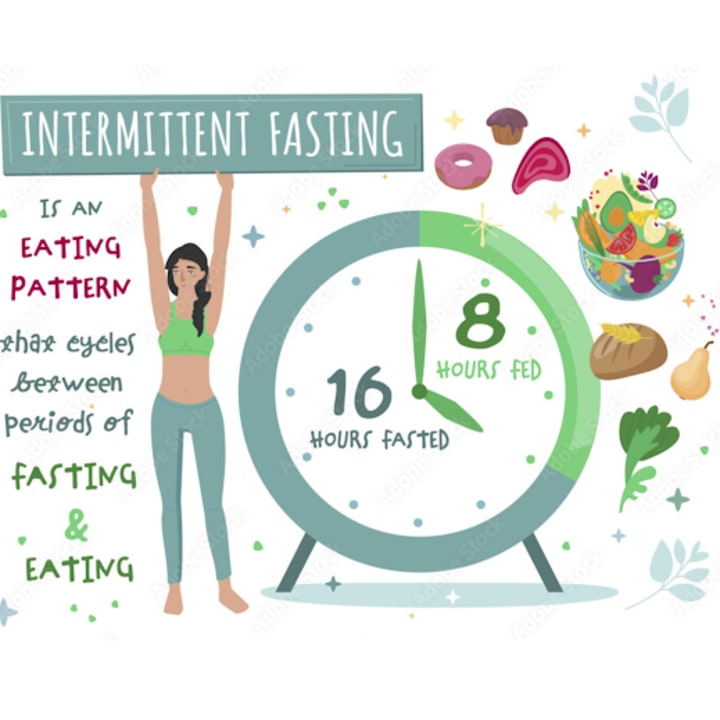
Provide practical advice for implementing intermittent fasting, including tips for meal planning, staying hydrated, managing hunger, and adopting a sustainable fasting schedule. Intermittent fasting has gained popularity as a weight loss strategy and is known to provide numerous health benefits. To achieve success with intermittent fasting and maximize its effectiveness for weight loss, here are some practical tips to consider.
1. Choose the Right Fasting Schedule:
There are different fasting protocols to choose from, such as the 16/8 method or the 5:2 diet. Find a schedule that suits your lifestyle and preferences. Start with shorter fasting periods and gradually increase them as your body adapts.
2. Stay Hydrated:
During fasting periods, it's crucial to stay hydrated. Drink plenty of water throughout the day to maintain proper hydration levels. You can also consume herbal teas or black coffee (without sugar or cream) to help curb hunger.
3. Eat Nutrient-Dense Meals:
When breaking your fast, focus on consuming nutrient-dense, whole foods. Include a balanced mix of lean proteins, healthy fats, fruits, vegetables, and whole grains. This helps provide essential nutrients while keeping you satiated.
4. Control Portion Sizes:
Although intermittent fasting doesn't restrict specific foods, it's important to practice portion control. Be mindful of your calorie intake and avoid overeating during your eating window. Maintain a balanced and calorie-controlled diet for sustainable weight loss.
5. Plan Your Meals:
Plan your meals in advance to avoid impulsive food choices or relying on processed snacks. Prepare healthy meals and snacks that align with your dietary goals. This helps you stay on track and make healthier choices during your eating window.
6. Listen to Your Body:
Pay attention to your body's hunger and fullness cues. It's essential to distinguish between true hunger and emotional cravings. Intermittent fasting can help improve your relationship with food by teaching you to differentiate between physical and emotional hunger.
7. Incorporate Exercise:
Regular physical activity complements intermittent fasting and enhances weight loss efforts. Engage in a combination of cardio and strength training exercises to maintain muscle mass and boost your metabolism.
8. Get Adequate Sleep:
Prioritize quality sleep as it plays a crucial role in weight management. Aim for 7-8 hours of uninterrupted sleep each night. Sufficient rest helps regulate appetite hormones and supports overall well-being.
Intermittent fasting is not suitable for everyone. Individuals with specific medical conditions or who are pregnant or breastfeeding should consult with a healthcare professional before adopting this eating pattern. It's always essential to listen to your body and make sustainable choices that work best for you.
Remember, this is just an overview of the topics you can cover when discussing the effectiveness of intermittent fasting. Each topic can be explored in more detail, considering the latest research findings, potential benefits, and individual variations in response.
. 1. CARB CYCLING FOR WEIGHT LOSS - E-Book

What is carb cycling and how can it get you in shape.
How to use carb cycling to burn fat & build muscle.
Who can benefit from carb cycling?
The basics of embarking on a carb cycling regime.
The differences between keto and carb cycling.
What you can and can’t eat on a carb cycling diet.
How to change your attitude for the better.
How carb cycling can promote weight loss.
The other benefits of carb cycling beyond weight loss.
The important things to remember when trying out carb cycling.
Top tips for getting started with a carb cycling eating plan.
2. Immune Complex



3. Green Coffee



Read more articles like this go - https://demandhealthylife.blogspot.com
About the Creator
Dinesh Premabandu
As a freelance writer and researcher, I am a passionate and dedicated individual with a keen eye for detail and a love for words. With broad of experience in the field, I have honed my skills in producing high-quality contents any topics






Comments
There are no comments for this story
Be the first to respond and start the conversation.